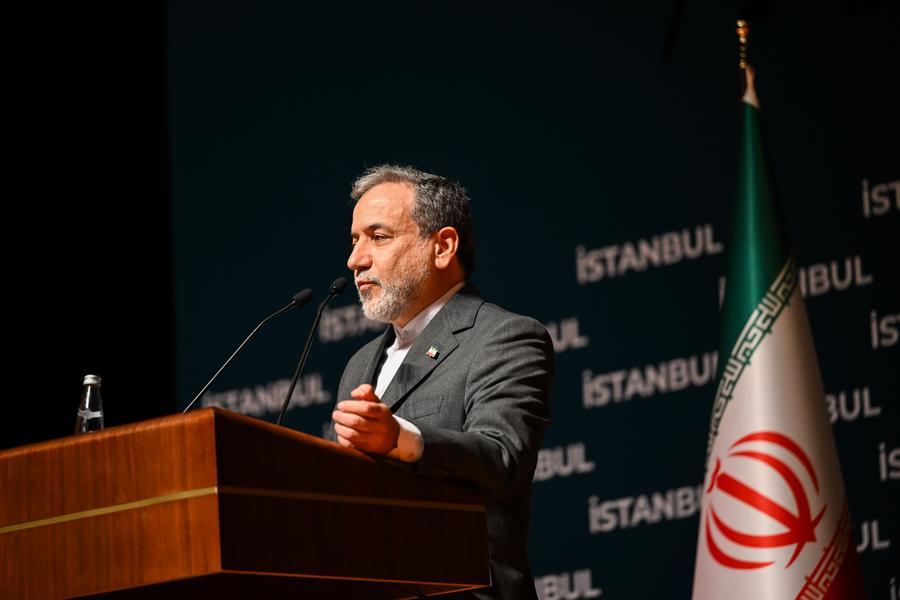
TEHERAN - Iran has always been, and will be, "ready for talks" on its nuclear program, Iranian Foreign Minister Seyed Abbas Araghchi said here Saturday.
"However, it should naturally be guaranteed that in case the negotiation starts again, it will not lead to a war to be waged by the United States or other parties," Araghchi said at a meeting with foreign ambassadors and representatives.
The recent Israel-Iran fighting proved that there is no other alternative but to return to diplomacy and a negotiated and agreed solution, Araghchi was quoted as saying by the Iranian Students' News Agency.
ALSO READ: Iran president: Cooperation with IAEA dependent on correcting 'double standards'
The United States "betrayed diplomacy and the negotiating table" by assisting Israel in attacking Iran and by directly targeting Iranian nuclear facilities afterward, he said.
If the United States seeks to resume the negotiation, it must guarantee that the same scenario will not unfold again, he said.
In any negotiation, the nuclear rights of the Iranian people, including the domestic enrichment of uranium, should be respected, he said, stressing that any potential negotiation should solely focus on Iran's nuclear program, and its military capabilities will be non-negotiable.
Teheran's cooperation with the International Atomic Energy Agency (IAEA) has not stopped and has only taken on a new form, he said, adding that from now on, Iran's relations with the IAEA will be managed through the country's Supreme National Security Council, which will decide about future cooperation with the IAEA after considering security and safety issues.
On July 1, Iran enacted a law on suspending cooperation with the IAEA and channeled its future cooperation with the agency through Iran's Supreme National Security Council instead of Iran's Atomic Energy Organization.
READ MORE: Iran's president says Israel attempted to assassinate him
Israel launched a series of major airstrikes on June 13 targeting nuclear and military sites across Iran, killing senior commanders, nuclear scientists, and civilians, and injuring many others, according to Iranian authorities.
Iran retaliated with multiple waves of missile and drone attacks on Israeli territory, causing casualties and damage.
A ceasefire between the two countries was reached on June 24, ending 12 days of fighting.
Also on Saturday, Iranian judiciary spokesman Asghar Jahangir said that no Israeli spy was harmed in the Israeli airstrike on Iran's Evin Prison in late June.
Jahangir made the remarks while responding to speculations that the June 23 attack on the high-security prison was intended to eliminate imprisoned Israeli spies.
Jahangir said five inmates were killed in the attack, but stressed that no Israeli spies were harmed. He added that some victims were in prison for financial crimes.
ALSO READ: Iran accuses US of backing Israeli strikes during 12-day conflict
The Israeli attack killed over 70 people overall, including visiting family members, prison staff, inmates and residents of nearby buildings.
Jahangir said by attacking the prison, Israel sought to demonstrate that it had no respect for international law and to intimidate the Iranian society and make people stop supporting the country.


